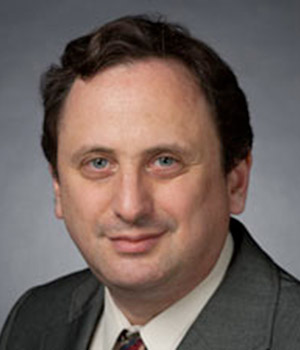
Michael Nosonovsky was promoted to full professor in June. He is a faculty member in the Mechanical Engineering Department at UWM’s College of Engineering & Applied Science.
Nosonovsky is a pioneer in the new area of triboinformatics, which combines the studies of friction and surface engineering with the fields of machine learning and artificial intelligence.
The far-reaching applications of this research to society include:
Reducing energy consumption: Discovering environmentally friendly ways to reduce friction and wear between materials can bring about surprising energy savings. “An estimated 10 to 20 percent of energy in developed countries is spent on overcoming friction, such as car-engine friction,” Nosonovsky says. “We might save millions of dollars with a more careful application of tribology—the science of friction, wear and lubrication.”
Improving water-repellent surfaces: High-quality water-repellant surfaces are extremely useful to many industries, including construction, fresh-water, biomedical and healthcare. Recently, Nosonovsky was part of a UWM research team that developed a spray-on coating that repels and deactivates airborne pathogens—including COVID—that land on surfaces. The coating could improve our nation’s preparedness for future waves of COVID and other airborne pathogens. The team was backed by a National Science Foundation COVID-19 RAPID grant.
“With his scholarship, Professor Nosonovsky has put himself in the group of the most productive scientists and engineers in the world,” says Mechanical Engineering Department Chair Deyang Qu, a distinguished professor and the Johnson Controls Endowed Professor in Energy Storage in UWM’s College of Engineering & Applied Science. “It’s a well-deserved promotion and our department is very pleased.”
Nosonovsky’s research has been published in prestigious journals such as Nature and the world’s oldest scientific research journal—Philosophical Transactions of the Royal Society—which published work by Isaac Newton, Charles Darwin, Benjamin Franklin and Stephen Hawkin. In all, he has authored or co-authored more than 150 papers and three books and been cited more than 11,900 times, an outstanding citation rate for an associate professor.